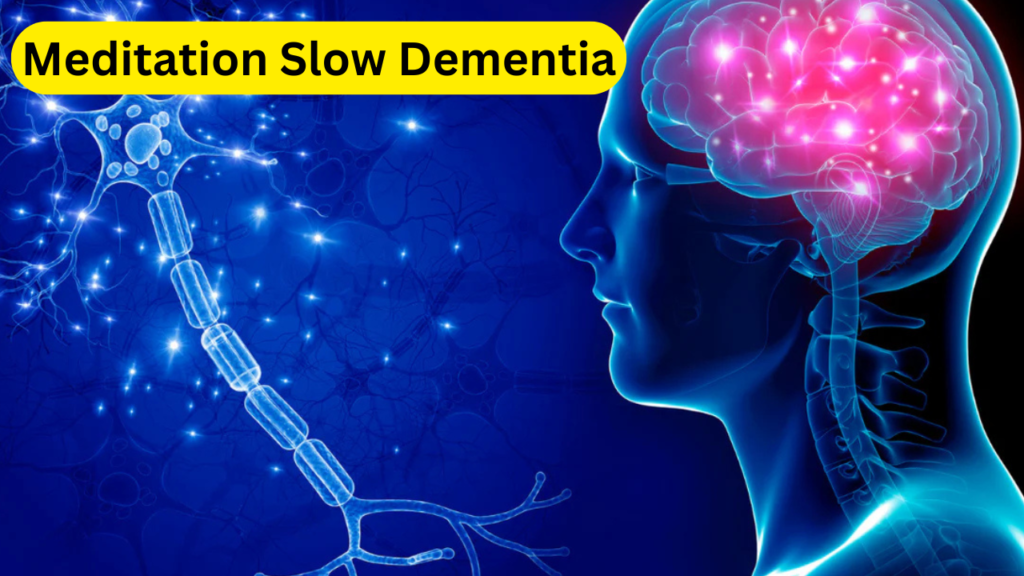How Meditation Changes Your Brain: Meditation is more than just a relaxation technique—it’s a powerful tool that can physically reshape your brain. From reducing anxiety and depression to potentially slowing the progression of dementia, the benefits of meditation are backed by science. By simply sitting comfortably, focusing on your breath, and letting go of intrusive thoughts, you can unlock profound changes in your brain’s structure and function. These changes not only improve mental health but also enhance cognitive abilities and emotional resilience.
Neuroscientists like Sara Lazar from Harvard University have studied the effects of meditation on the brain, revealing fascinating insights. Through advanced imaging techniques, researchers have discovered that regular meditation alters key areas of the brain, including the posterior cingulate cortex (PCC), the hippocampus, and the amygdala. These changes are linked to improved focus, better memory, and reduced emotional reactivity. What’s even more remarkable is that these benefits can be observed in as little as eight weeks of consistent practice.
Whether you’re looking to manage stress, boost your mood, or protect your brain from age-related decline, meditation offers a natural and accessible solution. In this article, we’ll explore how meditation transforms your brain, the science behind these changes, and the long-term benefits you can expect. Let’s dive into the details of how mindfulness meditation can help you lead a healthier, happier life.
Click here: The Benefits of Prenatal Yoga: A Complete Guide for Expecting Mothers
How Meditation Changes the Brain
The Posterior Cingulate Cortex (PCC)
The PCC plays a crucial role in mind wandering and self-referential thinking. In long-term meditators, this area of the brain becomes quieter, which means fewer distractions and a greater ability to focus. By training your brain to stay present through breath-focused meditation, you can reduce mind wandering and improve your attention span.
The Hippocampus: Boosting Memory and Learning
The hippocampus, a brain region essential for learning, memory, and executive control, undergoes significant changes with meditation. Research shows that the structure of the hippocampus increases in meditators, leading to better memory retention and cognitive function. Additionally, grey matter—the part of the brain responsible for processing information—also increases in this area.
Meditation doesn’t stop there; it also enhances white matter, which acts as the brain’s communication network. White matter deterioration is a natural part of aging and is exacerbated in conditions like dementia. By preserving and even increasing white matter, meditation helps maintain the brain’s efficiency and connectivity.
The Amygdala: Reducing Emotional Reactivity
While the hippocampus grows stronger, the amygdala—the brain’s fear and emotional center—shrinks and becomes less active. This reduction in amygdala activity is linked to lower levels of anxiety and depression. By calming the amygdala, meditation helps you respond to stress and threats with greater emotional balance.
Meditation for Anxiety and Depression
One of the most well-documented benefits of meditation is its ability to alleviate anxiety and depression. Studies show that even short-term meditation practice can lead to significant improvements in mental health. By reducing activity in the amygdala and enhancing connectivity in the prefrontal cortex, meditation helps regulate emotions and promote a sense of calm.
For those struggling with chronic stress or mood disorders, meditation offers a non-invasive, drug-free way to manage symptoms. The changes in brain structure and function observed in meditators provide a scientific explanation for these mental health benefits.

Can Meditation Slow Dementia?
Emerging research suggests that meditation may play a role in delaying the onset of dementia. The increase in grey matter and preservation of white matter in the hippocampus are particularly promising. These changes help maintain cognitive function and memory, which are often impaired in dementia patients.
While more studies are needed to confirm these findings, early evidence indicates that meditation can improve symptoms in individuals with mild cognitive impairment, a potential precursor to dementia. By incorporating meditation into your daily routine, you may be able to protect your brain from age-related decline.
Also read: Tata, Renault & Nissan Set to Launch New Creta Rivals in India: Everything You Need to Know
How Meditation Changes Your Brain Conclusion
Meditation is a simple yet powerful practice that can transform your brain and improve your overall well-being. From reducing anxiety and depression to enhancing memory and cognitive function, the benefits of meditation are supported by extensive scientific research. By altering key areas of the brain, such as the PCC, hippocampus, and amygdala, meditation helps you stay focused, emotionally balanced, and mentally sharp.
The changes in brain structure observed in meditators are not only fascinating but also highly practical. Whether you’re looking to manage stress, boost your mood, or protect your brain from aging, meditation offers a natural and effective solution. With consistent practice, you can experience these benefits in as little as eight weeks.
Moreover, meditation’s potential to slow the progression of dementia highlights its long-term value. By preserving grey and white matter, meditation helps maintain the brain’s efficiency and connectivity, even as we age. This makes it an invaluable tool for anyone looking to support their cognitive health.
Incorporating meditation into your daily routine doesn’t require special equipment or extensive training. All you need is a few minutes of focused breathing and a commitment to staying present. Over time, these small efforts can lead to profound changes in your brain and your life.
So why not give it a try? Start with just five minutes a day, and gradually increase your practice as you become more comfortable. Your brain—and your future self—will thank you.
How Meditation Changes Your Brain FAQs
1. How long does it take to see changes in the brain from meditation?
Research shows that noticeable changes in the brain can occur after just eight weeks of regular meditation practice. These changes include increased grey matter in the hippocampus, reduced amygdala activity, and improved connectivity in the prefrontal cortex.
2. Can meditation really help with anxiety and depression?
Yes, meditation has been shown to significantly reduce symptoms of anxiety and depression. By calming the amygdala and enhancing emotional regulation, meditation helps individuals manage stress and improve their mood.
3. How does meditation affect memory and learning?
Meditation increases the size and connectivity of the hippocampus, a brain region critical for memory and learning. This leads to better memory retention, improved cognitive function, and enhanced problem-solving abilities.
4. Is meditation effective for older adults or those at risk of dementia?
Yes, meditation may help slow the progression of dementia by preserving grey and white matter in the brain. Early evidence suggests that meditation can improve cognitive function in individuals with mild cognitive impairment, a potential precursor to dementia.
5. Do I need to meditate for hours to see benefits?
No, even short sessions of 5-10 minutes a day can yield significant benefits. Consistency is more important than duration, so aim to practice regularly rather than focusing on lengthy sessions.









